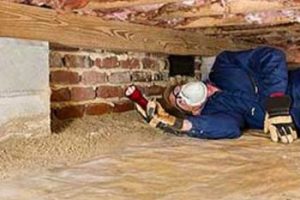 The role of a building inspector is vital in ensuring that a residential community meets building guidelines and codes. Commercial building inspectors generally perform these tasks:
The role of a building inspector is vital in ensuring that a residential community meets building guidelines and codes. Commercial building inspectors generally perform these tasks:
Obtain building permits from local government agencies. Verify that permits are being applied for according to applicable regulations. Inspect contractors’ work to ensure quality and comply with applicable regulations. Monitor construction site inspections periodically to make sure that all construction complies with local regulations.
Determine the status and defects of commercial and residential buildings. Ensure the overall safety of the sites by conducting routine maintenance and inspections. Maintain mechanical and structural conditions of structural elements of the buildings. Check electrical, plumbing, heating, ventilation, and drainage systems. Determine the status of fire extinguishers and emergency telephones. Inform homeowners of expected building wear and tear and repairs. Click here to talk to a building inspector now.
Obtain building inspection reports for each structure at the end of each year. These reports are essential when it comes time to apply for financial assistance from a lender or another institution. These reports also provide valuable information for evaluating the performance and efficiency of the institution in question. Many times building inspectors will also conduct one-time or periodic inspections of institutions. For example, a mortgage company will often hire one of these inspectors to help them assess their portfolio of properties.
Some building inspectors will have additional certifications or affiliations that will increase their value and marketability. This includes: Certified Steel Appraiser (CCA), Certified Plumber (CSP), or certified Roofing Contractor (RCC). These certifications will increase the value of the property and assist future buyers in determining if an institution is a good investment. Other affiliations or certifications include National Assessor’s Carpentry (NASC), National Fire Protection Association (NFPA), American Society of Home Inspectors (ASHI), or other industry-related associations. It should be noted that most NASC and NFA certification applications are usually associated with specific states and/or federal agencies.
When hiring a building inspector, please consider the work experience, education, training, and specialty they possess. For instance, a Certified Plumber (CSP) must have achieved a certain amount of apprenticeship, usually three years, and must have completed four different classes in plumbing. Likewise, certified Steel Appraiser (CSA) candidates need to have a certain amount of experience and be affiliated with five different construction trades to qualify. In addition to the experience and training, examine the building codes closely for any irregularities. Additionally, make sure that the inspector follows all local building codes as they pertain to the construction in question. Click here to talk to a building inspector now.
